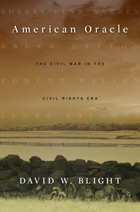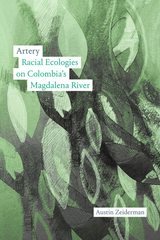
“The ghosts of the Civil War never leave us, as David Blight knows perhaps better than anyone, and in this superb book he masterfully unites two distant but inextricably bound events.”―Ken Burns
Standing on the steps of the Lincoln Memorial on August 28, 1963, a century after the signing of the Emancipation Proclamation, Martin Luther King, Jr., declared, “One hundred years later, the Negro still is not free.” He delivered this speech just three years after the Virginia Civil War Commission published a guide proclaiming that “the Centennial is no time for finding fault or placing blame or fighting the issues all over again.”
David Blight takes his readers back to the centennial celebration to determine how Americans then made sense of the suffering, loss, and liberation that had wracked the United States a century earlier. Amid cold war politics and civil rights protest, four of America’s most incisive writers explored the gulf between remembrance and reality. Robert Penn Warren, the southern-reared poet-novelist who recanted his support of segregation; Bruce Catton, the journalist and U.S. Navy officer who became a popular Civil War historian; Edmund Wilson, the century’s preeminent literary critic; and James Baldwin, the searing African-American essayist and activist—each exposed America’s triumphalist memory of the war. And each, in his own way, demanded a reckoning with the tragic consequences it spawned.
Blight illuminates not only mid-twentieth-century America’s sense of itself but also the dynamic, ever-changing nature of Civil War memory. On the eve of the 150th anniversary of the war, we have an invaluable perspective on how this conflict continues to shape the country’s political debates, national identity, and sense of purpose.

In these two essays, one of America’s most honored writers fastens on the interrelation of American democracy and poetry and the concept of selfhood vital to each. “I really don’t want to make a noise like a pundit,” Mr. Warren declares, “What I do want to do is to return us—and myself most of all—to a scrutiny of our own experience of our own world.” Indeed, Democracy and Poetry offers one of the most pertinent and strongly personal meditations on our condition to have appeared in recent letters.
Our native “poetry,” that is, literature and art, in general, is a social document, is “diagnostic,” and has often been a corrosive criticism of our democracy, Mr. Warren argues. Persuasively, and movingly, he shows that all of “art” and all that goes into the making of democracy require a free and responsible self. Yet the American experience has been one of the decay of the notion of self. Our astounding success jeopardized what we promised to create—the free man. For a century and a half the conception of the self has been dwindling, separating itself from traditional values, moral identity, and a secure relation with community. Lonely heroes in a bankrupt civilization, then protest, despair, aimlessness, and violence, have marked our literature.
The anguish of Robert Penn Warren’s own poetic vision of art and democracy is soothed only by his belief that poetry—the making of art can nourish and at least do something toward the rescue of democracy; he shows how art can be- come a healer, can be “therapeutic.” In the face of disintegrative forces set loose in a business and technetronic society, it is poetry that affirms the notion of the self. It is a model of the organized self, an emblem of the struggle for the achieving self, and of the self in a community. More and more as our modern technetronic society races toward the abolition of the self, and diverges from a culture created to enhance the notion of selfhood, poetry becomes indispensable.
Compelling, resonant, memorable, Democracy and Poetry is a major testament not only to the vitality of poetry, but also to a faith in democracy.


John Greenleaf Whittier's Poetry was first published in 1971. Minnesota Archive Editions uses digital technology to make long-unavailable books once again accessible, and are published unaltered from the original University of Minnesota Press editions.
In this volume Robert Warren Penn, the noted critic, poet, and novelist, provides a major new appraisal of the once enormously popular New England port, John Greenleaf Whittier, along with his selection of 36 of Whittier's poems. Through Warren's perceptive and illuminating discussion, the significance of Whittier as a writer for our time becomes clear. In his introduction Warren shows that Whittier's deep commitment to his fellowman, especially his devotion to the cause of abolition, profoundly influenced his writing. In his estimate of Whittier's place in literature, Warren invokes the questions What does the past mean to an American? and in this context he compares Whittier with Cooper, Hawthorne, Melville, and Faulkner. He finds that Whittier's "star belongs in their constellation. If it is less commanding than any of theirs it yet shines with a clear and authentic light."
READERS
Browse our collection.
PUBLISHERS
See BiblioVault's publisher services.
STUDENT SERVICES
Files for college accessibility offices.
UChicago Accessibility Resources
home | accessibility | search | about | contact us
BiblioVault ® 2001 - 2025
The University of Chicago Press









